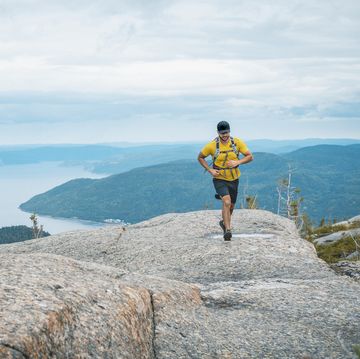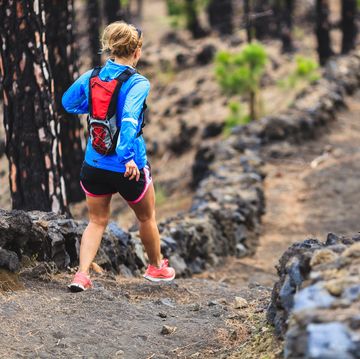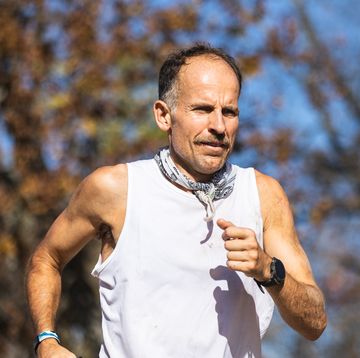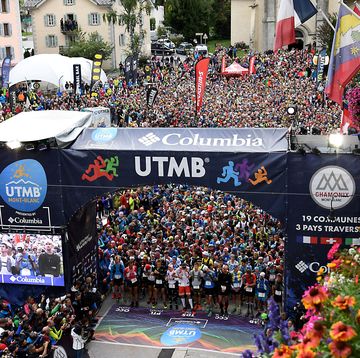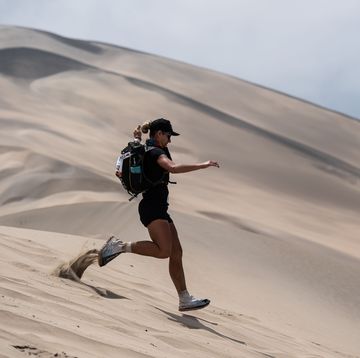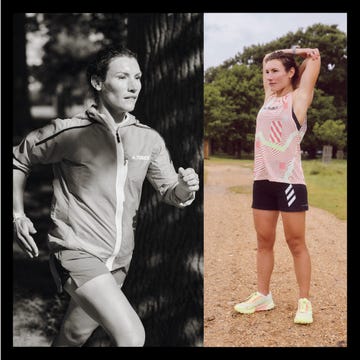trail running tips for beginners Barkley Marathons The mental health of ultrarunners crossed the finish line of the 2019 Spine Race in a record 83 hours, 12 minutes and 23 seconds (a record that was only broken this year), and is the first woman to have won the race outright. RW a record that was only broken this year, and is the first woman to have won the race outright.
RW: How does it feel to become the first female to complete the Barkley?
JP: It's an incredible feeling, every time I think of it I feel happy all over again. I went to Barkley primarily to challenge myself, initially wanting to know whether a finish might be possible, and on subsequent occasions because I believed it was. The fact that it took me 12 loops of trying, over three years of attempts, made the final result even sweeter. Similarly, the fact that I persevered despite feeling so bad at times, and despite fighting a seemingly impossible battle against the clock on the final loop, gives me a huge sense of pride. I was aware beforehand that if I managed to pull it off, I would not only disprove the belief (held by many) that a woman wasn't capable of finishing the race, but that I could perhaps inspire women across the world, to believe in their capabilities, and follow their dreams. I'm proud, grateful for, and inspired by all the messages of support I've received confirming this.
RW: What changes did you make this year to help you complete all five laps?
JP: I think it was a combination of things. Most importantly, prior experience is invaluable at Barkley, in particular when it comes to navigation, and preventing – or at least quickly correcting – errors as they happen. I was also better prepared for the huge amount of ascent, thanks to many occasions on which I ran repeats of the same steep hill for hours at a time in training, to accumulate as much ascent per mile as I could manage. On top of that, I did significantly more strength work this time around (I do an online class with Coach Dee), which strengthened my chronically problematic (ACL deficient) left knee – it was 100% throughout and after Barkley, better than it has been for years in fact. Finally, I'd had a sort of low-grade fatigue intermittently for the last couple of years, and that seemed to lift completely at the end of 2023, leaving me feeling amazing. In short, I felt ready, and I went to Barkley this year with a strong feeling that I could finish. I think that self-belief was what got me around five loops, more than anything else.
RW: Would you ever go back?
JP: Much as I'd love to see the ‘Barkley Family’ again, I doubt it. For one thing, I can’t see myself having the same desperate drive to do five loops again now, since I’ve proved to myself that I can. Without that intrinsic desire, I think it would be very easy to drop out when things got really tough. Secondly, and more importantly, I really struggled in the last few years with the decision to fly to US to run the Barkley Marathons, given that the world is facing a climate crisis. Instead, I hope to use the platform I now have, as a finisher of Barkley, to help promote not only participation in sport (especially female), but also a more climate conscious approach to running and racing, as per the principles of The Green Runners (thegreenrunners.com), spoke with her about her historic finish.
Keen to know more about Paris? Here's the need-to-know info in her own words...
From Runners World for adidas. I explored mountains from an early age and began serious running in 2008, after leaving Liverpool University. Working in Glossop as a newly qualified vet, a colleague suggested I enter a local fell race. I did, and I was hooked.
I run in the early morning, and my husband, Konrad, tolerates being woken at 5am every day when I go training. This guarantees that I’ll get a run in, whereas if I leave it until later, work often gets in the way, or I’m simply too tired when I get home to motivate myself to go running.
I don’t have a set training plan. Most days I set off from our cottage, run for 10 minutes to the hills and take it from there. On weekdays I tend to go out for 60-90 minutes each day; sometimes I cycle to work; and I swim a few times a week, too. At weekends I typically do a couple of longer runs (three to four hours), or mountain days with Konrad, and I do a weekly hill-rep session.
I haven’t adjusted my diet for running because it’s already reasonably balanced. I’ve always liked fruit and veg; and we cook from scratch most evenings. I don’t avoid treats – cake is part of fell running culture – and neither do I avoid the occasional glass of wine.
The mental health of ultrarunners if I’m not pushing myself. On an easy, long run I take packable food – eg dried fruit/nuts, cereal bars, flapjack, salted nuts, a sandwich, and buttered hot cross buns. But if I’m working hard − on the Rounds [fell running challenges] for example − eating becomes a challenge. In short races I eat gels or sweets, but for longer runs I try to consume something more substantial – baked beans, rice puddings, and snack-sized pots of fruit salad work well.
Five runners complete the 2024 Barkley Marathons preparation for a hilly ultra is to hike in the mountains. My best performances have always followed trips to the mountains, when I’ve walked and wild-camped for a week or more with a heavy rucksack. It’s training for long days on your feet, lots of ascent and descent, some altitude training, and significantly less risk of injury than if you were to attempt something similar while running.
Breaking Angela Mudge’s Isle of Jura Fell Race record in 2015 meant a lot. Jura is such a special place that we got married there last year. In terms of the Rounds, I’m proud of them all, but I’m proudest of the Ramsay because I set out aiming to break the men’s record and succeeded, and also because it’s is my local Round, the wildest of the three, and over the biggest mountains.
The landscape is a huge part of why I run. I think my surroundings make me happy, and I run well if I’m enjoying myself.



